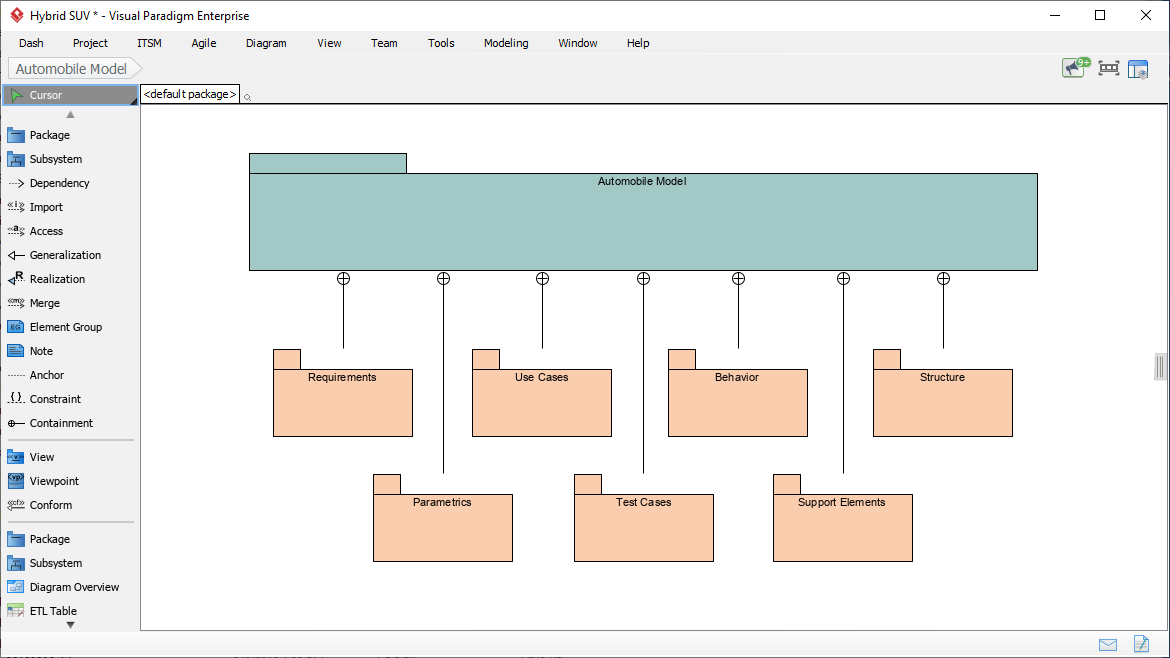Create SysML diagrams with a professional SysML diagram software.

Effective identification and management of requirements can lead your project to a success. The SysML tool features a SysML requirement diagram tool that provides a visual approach in representing and managing system requirements. In a requirement diagram, requirements are shown as blocks, with connectors in between, illustrating the derivation, dependency and grouping of requirements. The requirement diagram tool allows you to define your own requirement types, with user-defined properties and appearance, and to produce a list of requirement to Excel for external manipulation. Import the file back for updating.
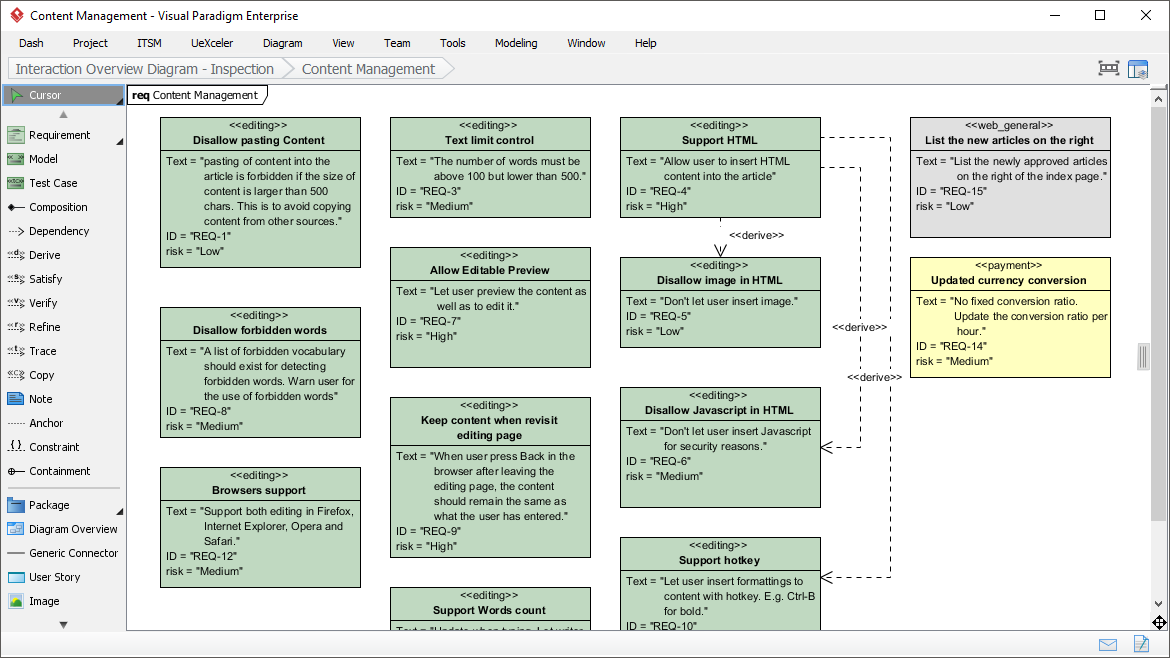
Visualize your system hierarchy. Define the system/component classifications in blocks to get a better picture of interconnections between these system components.
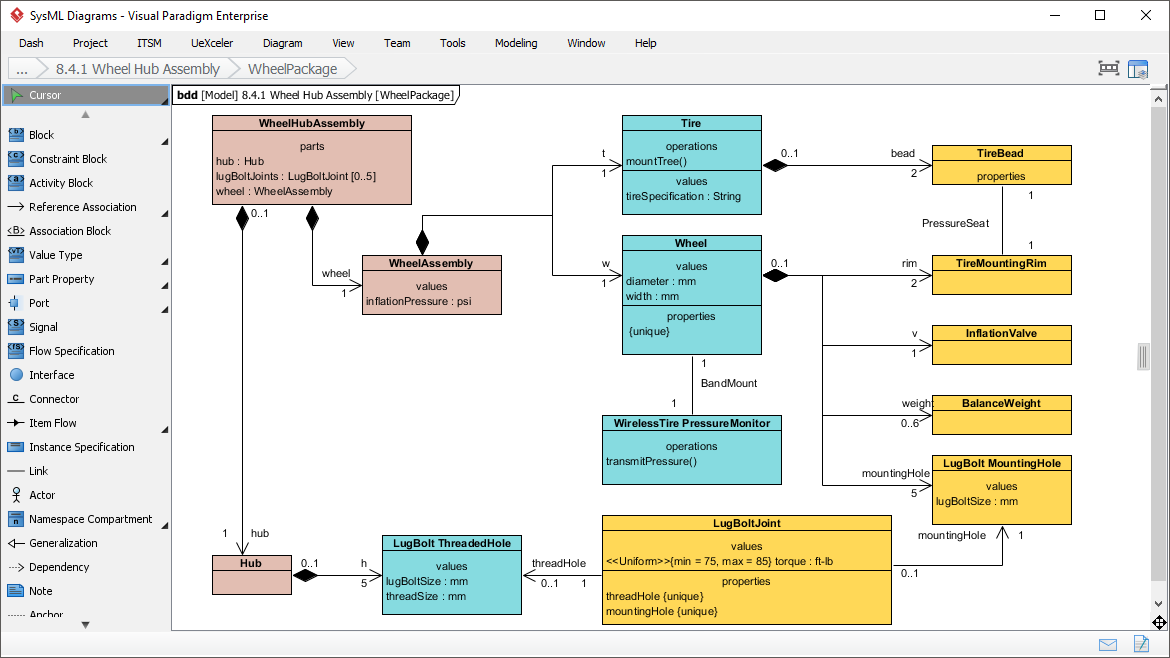
Take a closer look at your system design. Describe the internal structure of a system in terms of its parts, ports, and connectors.
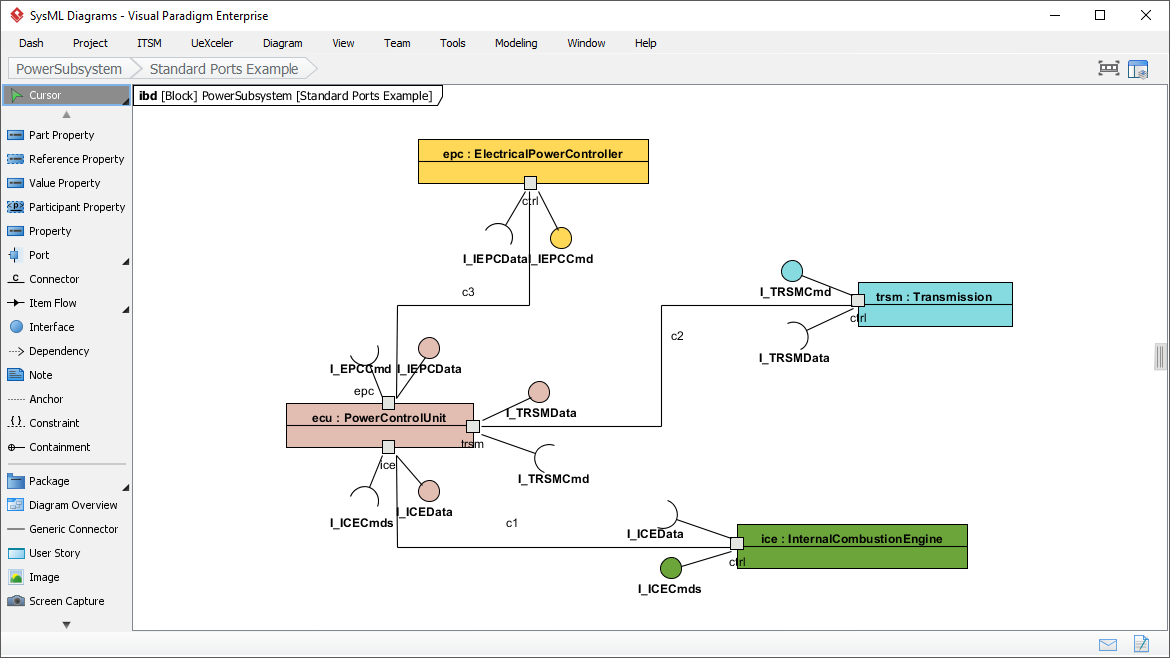
Parametric Diagram is a restricted form of internal block diagram that shows only the use of constraint blocks along with the properties they constrain within a context. Parametric diagram is used to support engineering analysis, such as performance, reliability, and mass properties analysis.
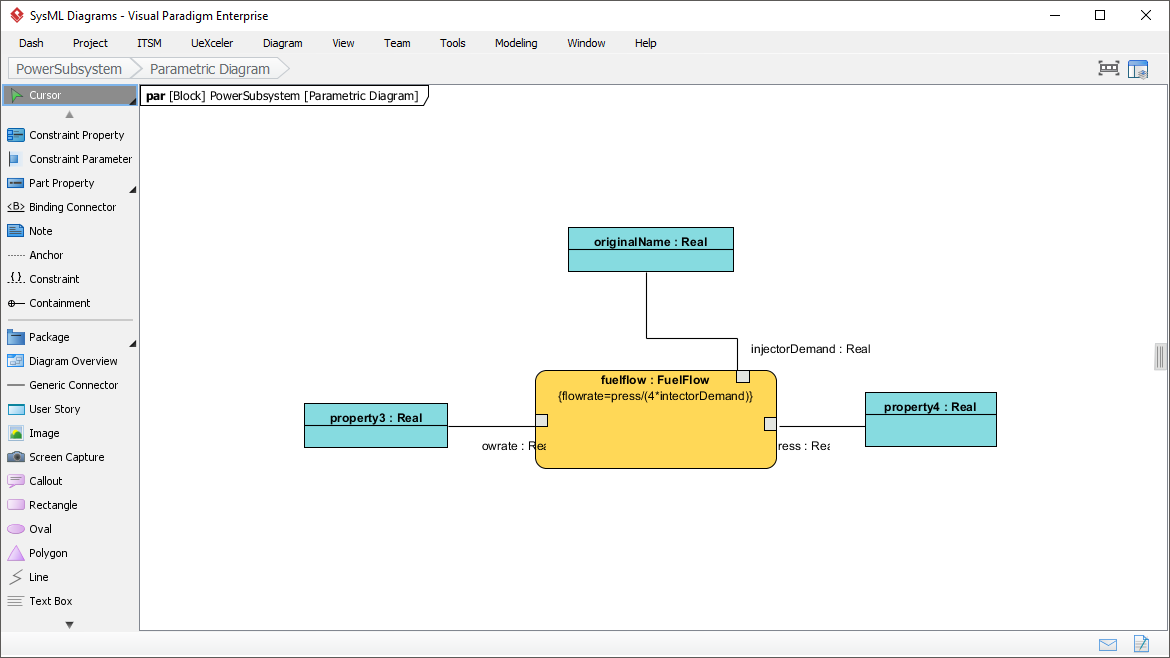
An activity diagram is used to specify a behavior, with a focus on the flow of control and the transformation of inputs into outputs through a sequence of actions. It is commonly used as an analysis tool to understand and express the desired behavior of a features, use case, or even the entire system. For example, an activity diagram is often be used to elaborate a number of possible use case scenarios, and that establish the traceability between a feature (use case model) and behavior model (activity diagram).
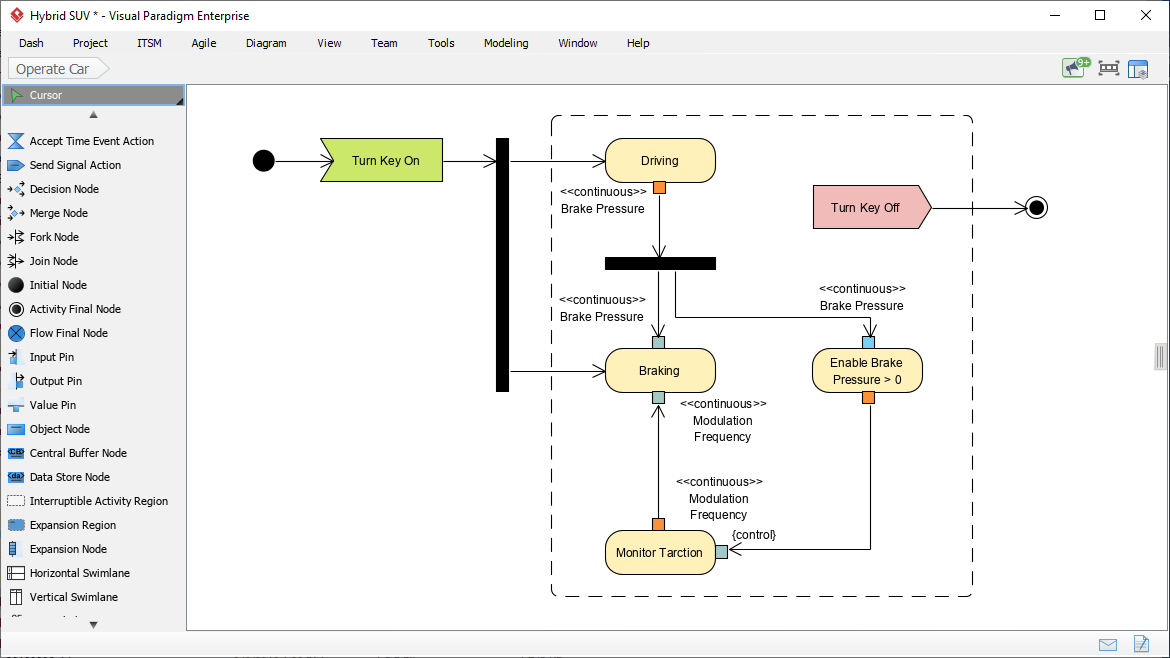
A sequence diagram is used to specify a behavior, with a focus on how the parts of a block interact with one another via operation calls and asynchronous signals. Sequence diagrams are commonly used as a detailed design tool to precisely specify a behavior as an input to the development stage of the life cycle. For example, a sequence diagram is often be used to show a particular example of operation of a System, in the same way as movie-makers may draw up a storyboard. A storyboard shows the sequence of events in a film before it is made.
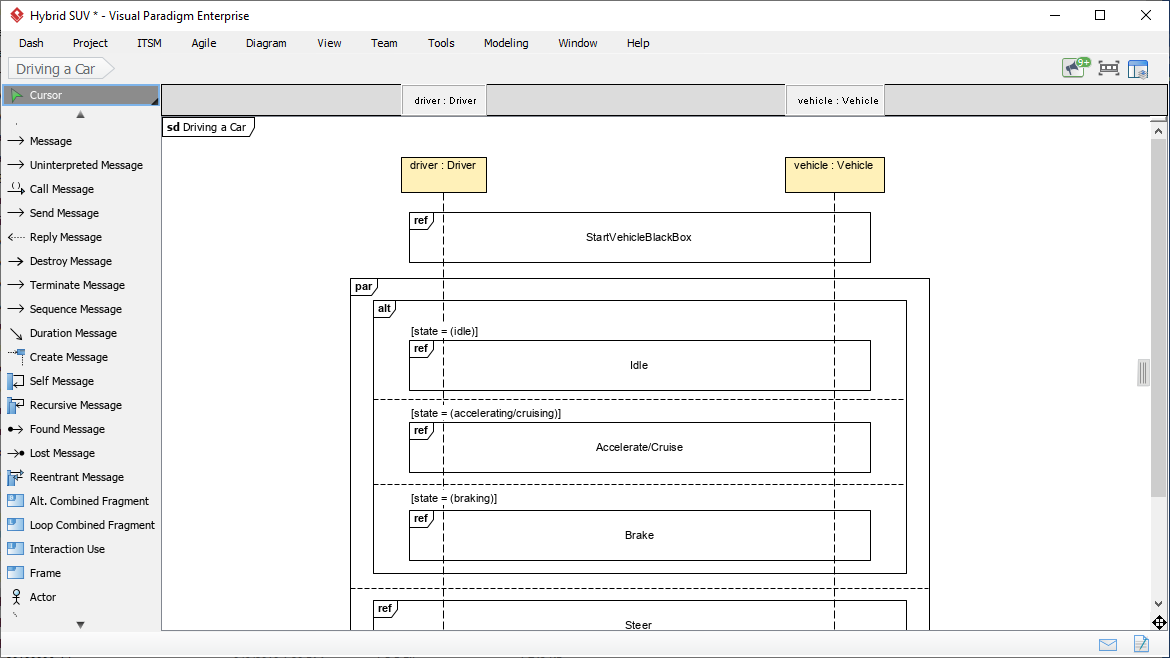
A State Machine diagram shows system behavior as sequences of states that a component or interaction experience in response to events. A State represents a significant condition in the life of a Block. For example, it is often used to describe how a block transitions from one state to another and defines what logical behavior (Activities/Actions owned by the Block) are performed when entering or exiting a State. State machines are useful for system design and simulation/code generation.
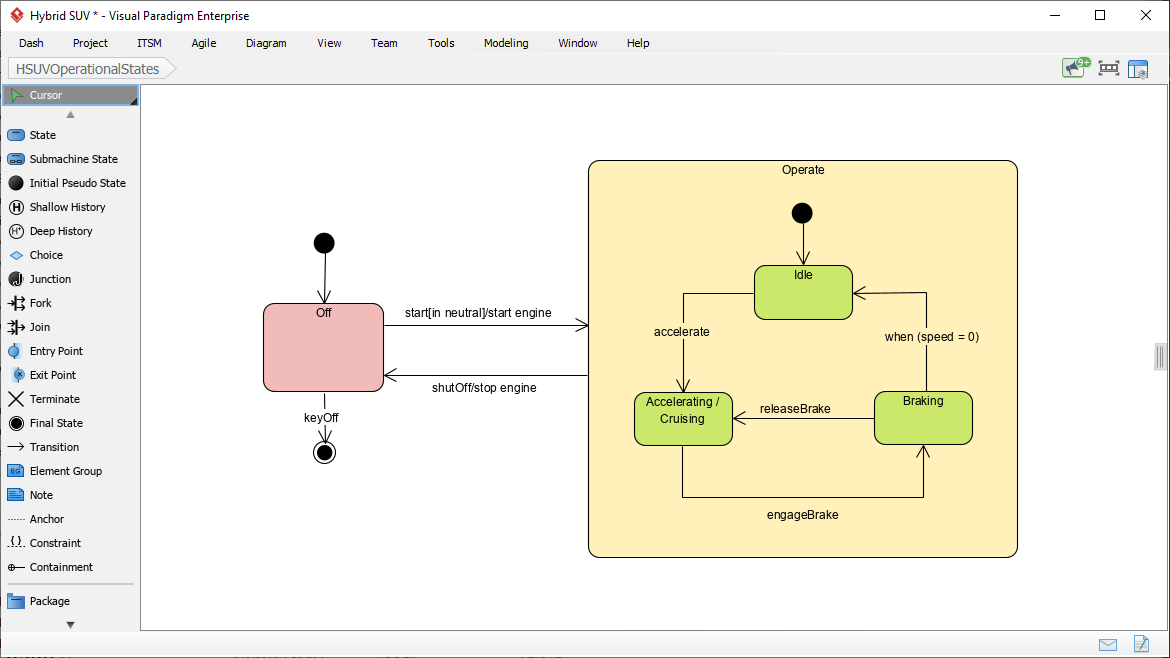
A Use Case diagram shows system functional requirements as transactions that are meaningful to system users. It is a black-box view of the services that a system performs in collaboration with its actors. Useful for specifying functional requirements.
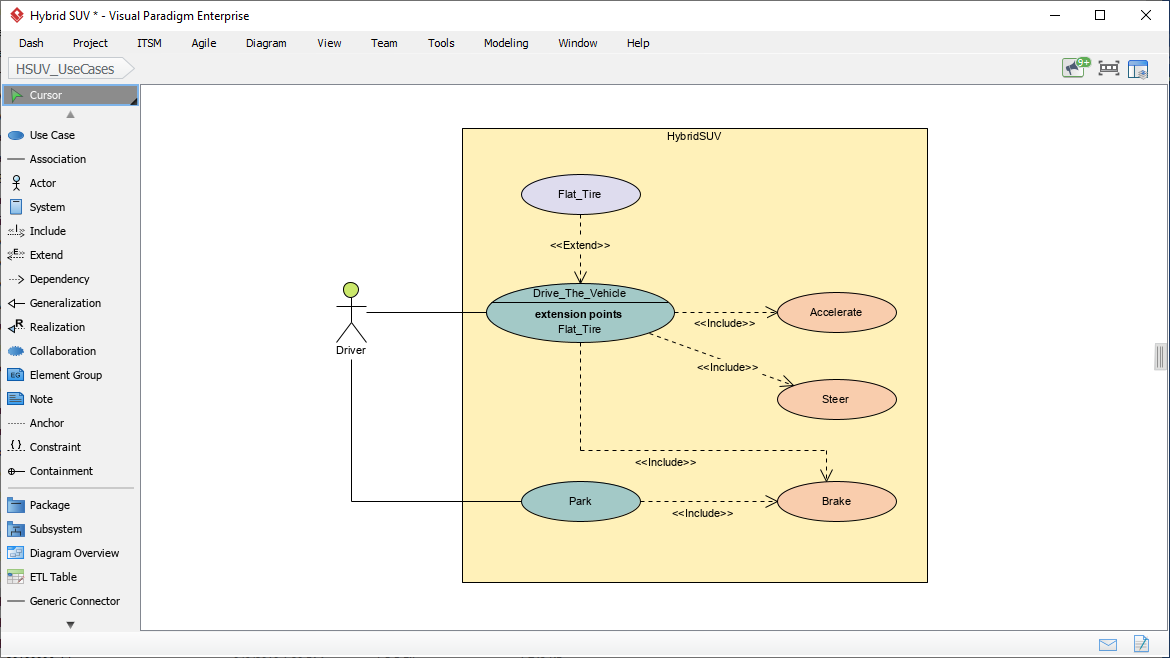
A package diagram is useful for displaying the way a model is organized in the form of a package containment hierarchy. It shows how a model is organized into Packages, Views and Viewpoints. A package diagram may also show the model elements that packages contain and the dependencies between packages and their contained model elements. It is useful for model management.
